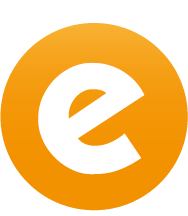Home › Forums › QUESTIONS & REFLECTIONS › Experiential Learning Cycle
-
Experiential Learning Cycle
Posted by Mustafa Erdoğan on March 15, 2023 at 2:43 pmYou can share your reflections and questions about Kolb Experiential Learning Cycle here.
Valentina Todoroska replied 10 months, 1 week ago 7 Members · 10 Replies -
10 Replies
-
I have been trying to disseminate it in my own organization for a while now. Especially in an organization working in the field of technological R&D with an average age below 30, I closely see the reflections of increased awareness of experiential learning in professional life. I have an idea for a field study on this in the future. Apart from my personal experience, it is very motivating as a trainer working in this field to see its impact in professional fields.
-
The best thing about the cycle is that it’s very adaptable. We can integrate it with many contexts, such as leadership, problem-solving, innovation, conflict resolution, or project management. I am looking forward to hearing your research ideas Şefik! 🙂
-
-
Upon watching the Experiential Learning Cycle Course’s knowledge clips, I realized that I have gone through this learning cycle numerous times throughout my career, whether in my master’s studies or my work. Some aspects of this cycle tended to be given more attention than others, besides approaching this cycle from different angles for each experience. For instance, when working on my master’s thesis, I began by researching the topic and planning the experiments (Abstract conceptualization & Concrete experience). I then carried out those experiments (Concrete experience), analyzed their results, and engaged in reflection (Reflective observation). After that, I connected with previous research and theories (Abstract conceptualization) and proposed recommendations and solutions (Active experimentation). It has become clear that what M.Volkan Müderrisoglu imparted to us during the ToT sessions in Poland this year holds: “Experiential learning is not only a learning method; it is learning by itself.”
-
Excellent point, Hadi. The cycle is not a linear process; we engage in different steps of the cycle depending on what we are learning and how we prefer to learn. It is not a recipe for trainers how to design their programs, but it is the natural process of learning.
-
-
A very interesting method of learning. when the teacher understands its effectiveness, students can achieve greater results in learning and do it with pleasure
-
great concept, and very practical! if schools and universities knew about this, more people would love learning :(. I want to tell all the teachers I know about this learning cycle and introduce it in formal education too! P.S. the hardest part for me it’s concrete experience: can it be a story? For example, like in this case: we heard a story about Sarah and bread to understand the whole cycle. Was it a Concrete Experience step? 🙂 P.P.S. thanks for answer!
-
Arina, actually, all other three steps of the cycle are experiencing as well 😉
While you observe and reflect, you experience; while you read and think, you experience; when you act, you naturally experience 🙂
-
-
I just had to lead a Bulgarian Language class for displaced children and I tried the cycle by also prompting them to do it themselves. It is shocking to me to see how naturally it came about without them knowing anything about the experiential learning cycle!
-
What a great experience! This shows again that the experiential learning cycle is the natural way of learning for all of us.
-
-
it’s interesting how every time you apply the circle you discover new things and all of them are in function. More you use it, more you figured out that is every day tool.
Log in to reply.


